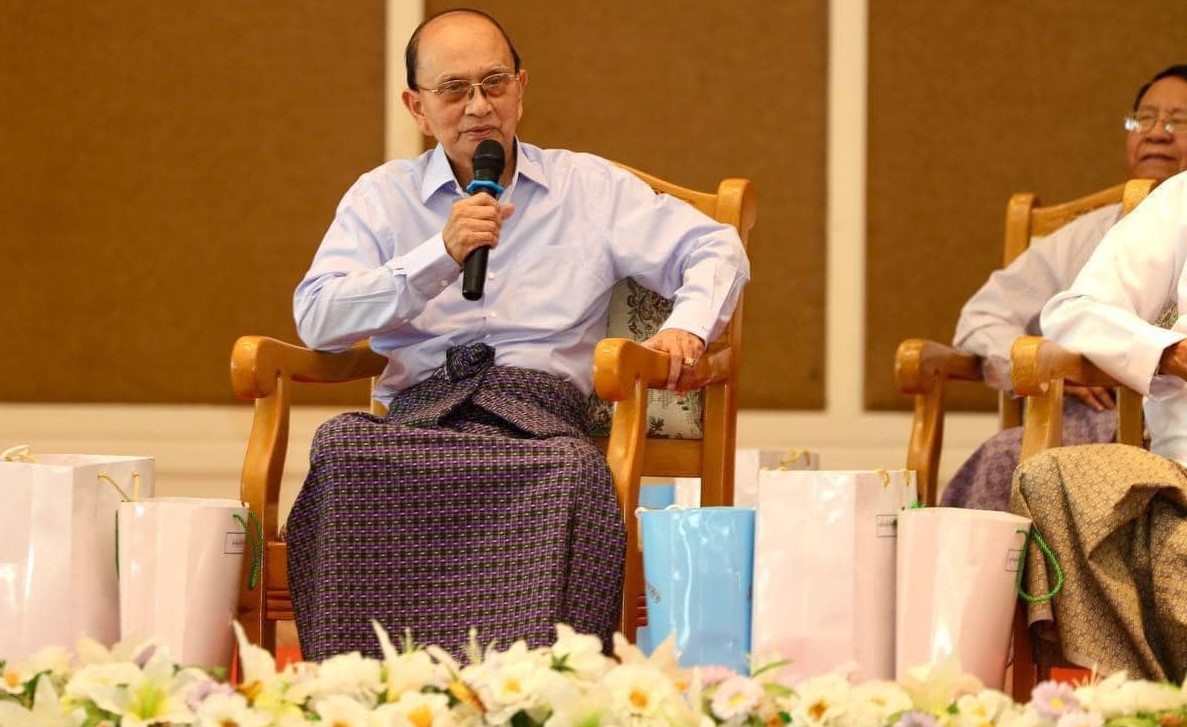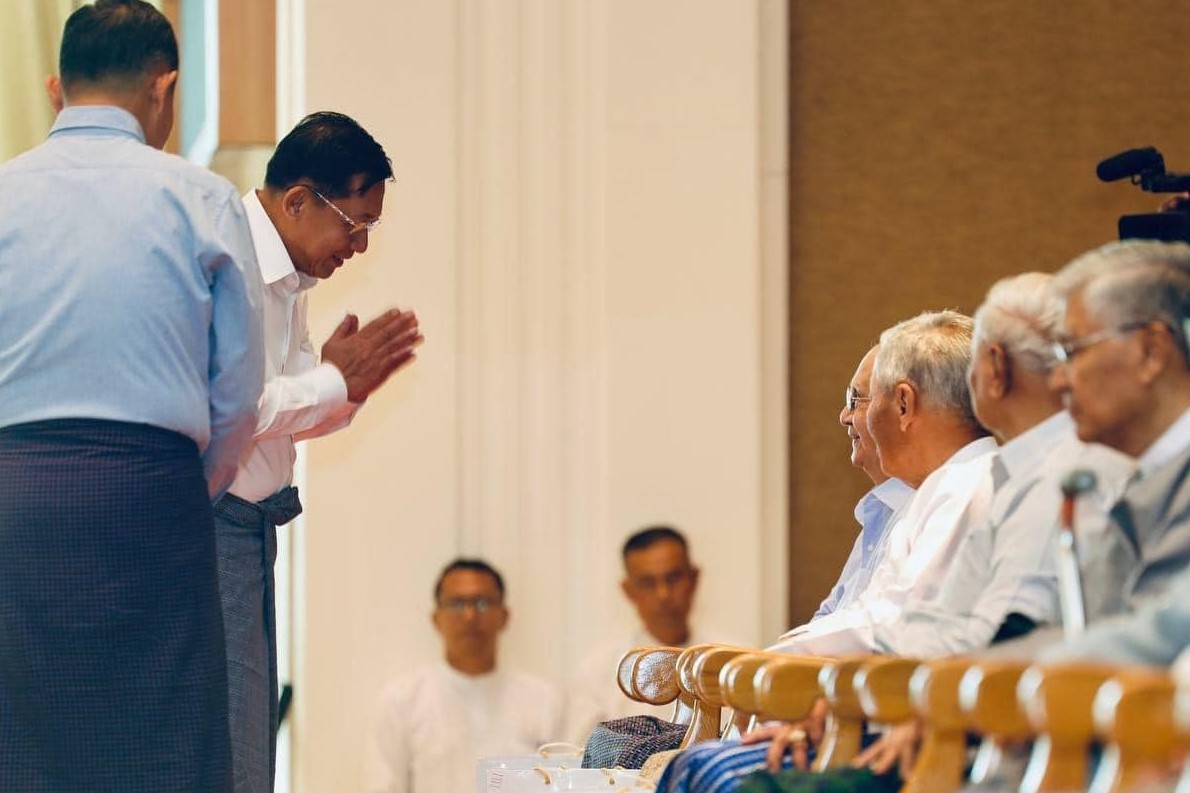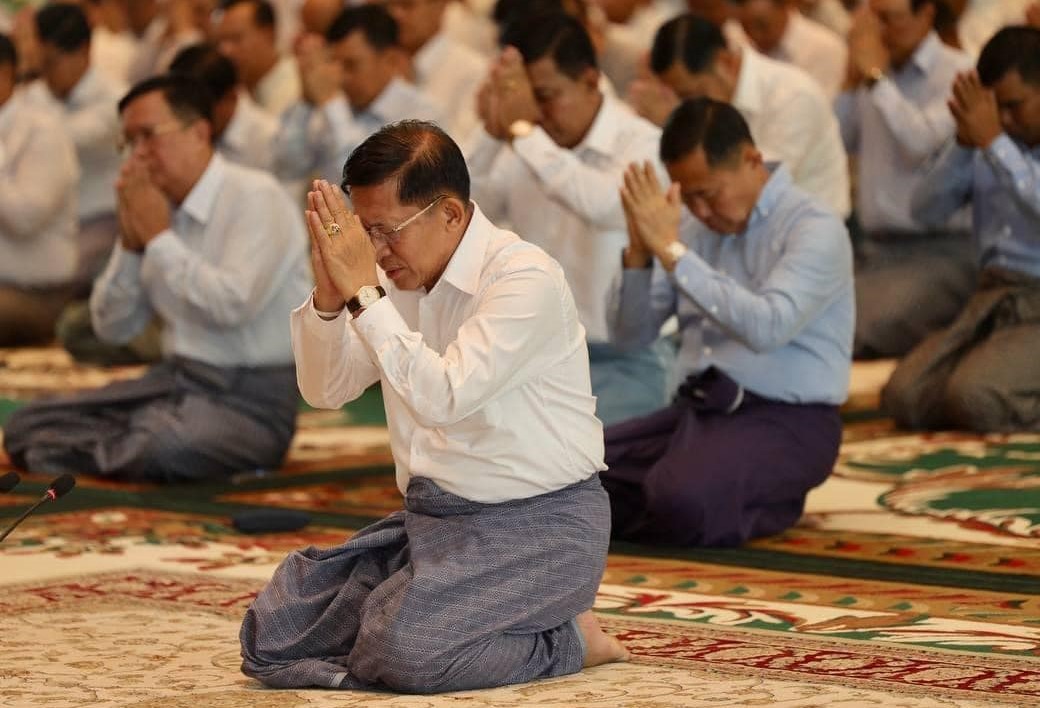Former Myanmar president U Thein Sein’s recent meetings with senior Chinese official Peng Xiubin and ex-UN chief Ban Ki-moon in Naypyitaw have attracted attention among Myanmar watchers.
Peng, the director-general of the International Liaison Department of the Communist Party of China (CPC), also met with former dictator Than Shwe. While the CPC has been tightlipped about Peng’s meetings, Ban said in a statement that he met with the regime leaders and U Thein Sein to discuss the current situation. He emphasized the importance of all parties playing a role in securing a lasting solution to the crisis, including the parallel civilian National Unity Government (NUG), which commands the loyalty of the vast majority of Myanmar people.

U Thein Sein’s meetings with the CPC official and the former UN secretary-general come at a time when diplomatic efforts to end the crisis in Myanmar have stalled. Given China’s geopolitical interests in Myanmar, many believe it is likely the Chinese representative discussed finding ways to solve the country’s crisis with the former president.
It’s curious that both Peng and Ban met U Thein Sein—a former general who became president of the military proxy government when former dictator Than Shwe relinquished power in 2011—in rapid succession. During his tenure, U Thein Sein attracted international praise for opening Myanmar to the world. In 2016, he handed power to the elected National League for Democracy (NLD) government led by Daw Aung San Suu Kyi, and since then has lived a largely private life.
Observers suggested that both the Chinese representative and Ban approached the former president as they see him as an alternative route to thawing Myanmar’s ongoing political crisis, which was sparked by the military’s seizure of power from the elected NLD government in 2021.
Since then the Southeast Asian country has been engulfed by deadly violence with armed resistance to the regime spreading nationwide; the regime is still unable to control the country more than two years on, and regime leader Min Aung Hlaing is caught in a political deadlock. International diplomatic efforts to persuade him to end the violence in the country have so far failed.

“That’s why both China and Ban Ki-moon are likely to have turned to U Thein Sein for their meetings to see if there is anything he can do to break the country’s political impasse,” said a local political observer.
‘Reformist’
The former general was handpicked by the former dictator Than Shwe to lead the military proxy government in 2011 when he gave up power. U Thein Sein was hailed internationally as a “reformist”, and “Myanmar’s Gorbachev” in 2011-12 for liberalizing the economy, releasing political prisoners and allowing the opposition NLD to take part in the country’s mainstream politics, among other things. Current junta boss Min Aung Hlaing was the military chief in the administration of U Thein Sein, who ceded power to the NLD after its landslide victory in the 2015 election.
When the military staged a coup in 2021, accusing the NLD of vote rigging in the 2020 election, U Thein Sein didn’t comment. Instead, he made cash donations to the families of members of the Union Solidarity and Development Party—the military’s proxy party, of which he is a former chairman—who were killed by resistance forces for allegedly being junta informants. The donations, and his silence about the coup, amount to a tacit endorsement of the takeover. Shortly before the election, some ex-generals-turned-high ranking officials close to U Thein Sein warned The Irrawaddy that if the NLD won another election, “we will be back.”
Since last year, U Thein Sein has enthusiastically appeared at ceremonies held on Armed Forces Day at which Min Aung Hlaing and his subordinates pay their respects to senior ex-servicemen. During the most recent event, the ex-president delivered a speech as Min Aung Hlaing and his generals sat in poses of deep respect.
Many people believe the ceremonies were simply designed to demonstrate that Min Aung Hlaing still enjoys the full backing of former generals, including the former president.
Way out of the stalemate?

Observers suggested that U Thein Sein’s former international image as a reformist, combined with his good relations with Min Aung Hlaing, make him attractive to China and others, especially neighboring countries who have been badly affected by Myanmar’s instability, as someone who could possibly offer a solution to the crisis.
“They, including Ban Ki-moon, may think U Thein Sein could be able to convince Min Aung Hlaing to find a way out for Myanmar,” one analyst said.
But even if the former president was asked to intervene, it’s unclear how he would respond. Most important of all would be Min Aung Hlaing’s reaction.

















